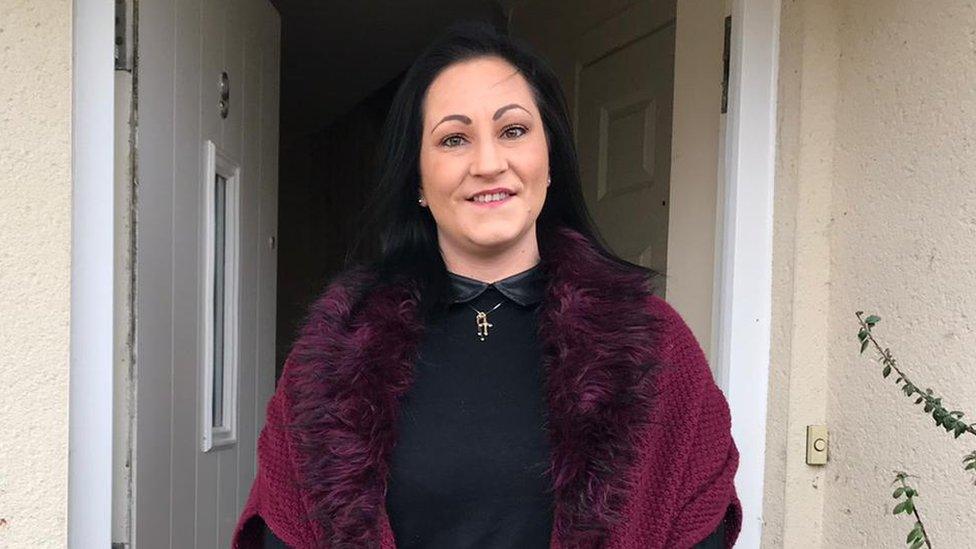Somerset carers' matching service calls on others to follow
- Published
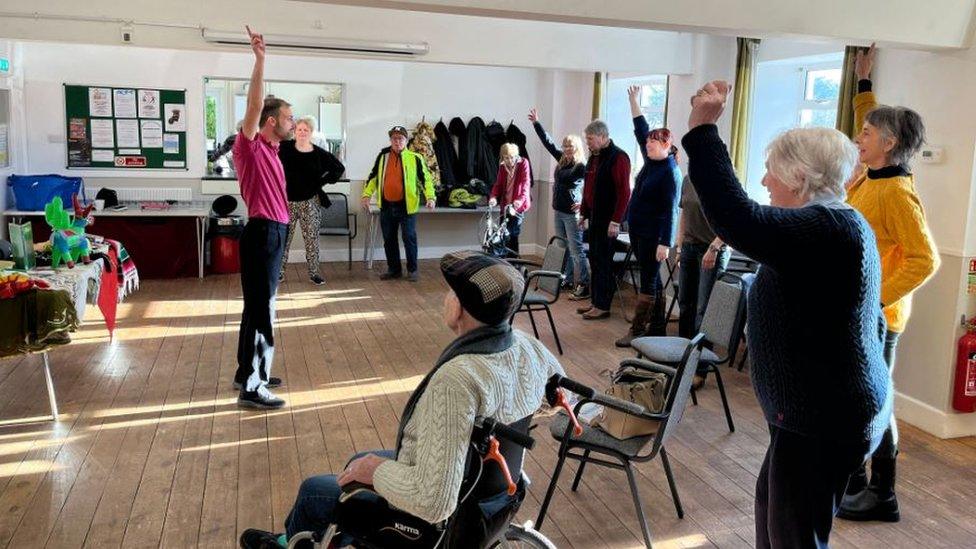
The charity also hold a weekly memory group where members take part in dance and storytelling activities
A charity is urging others to copy its community carers' matching service which they say is helping to free up hospital beds.
Founded by David Patterson in 2018, Wiveliscombe-based Wivey Cares matches self-employed carers with people needing help at home.
Mr Patterson said it was "a really important facility" in the area.
Somerset's health bosses are currently working to ease the pressure on beds caused by the ageing population.
Joan Lee, who cares for her husband Simon, said the charity had "made such a difference" to their lives.
Ms Lee said she uses the care service twice a week to give her "a break" and "to go and see friends and go shopping".
She said Wivey Cares offers a more personal service than using a bigger care company.
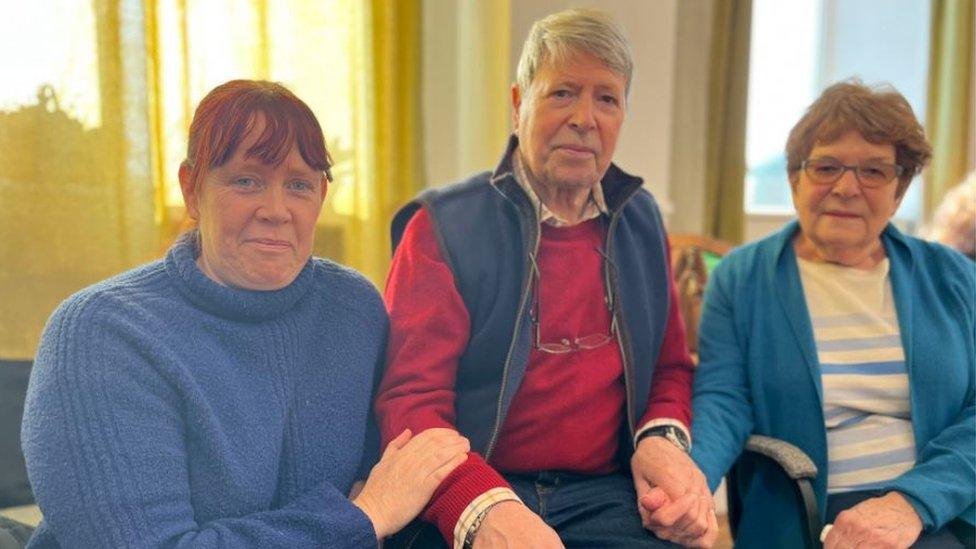
Joan cares for her husband Simon and uses Wivey Care twice a week, saying carer Emma was like "part of the family"
"They come to your house and they just become part of the family," she added.
Mr Patterson came up with the idea after chatting with friends about the struggling care system.
He said previously "you had the agencies who were based well away" from the area, which meant hours with clients were "cut down" because they had to travel elsewhere to other clients.
"Other self-employed carers put their notices up in the hardware shop so it was about bringing both together into a core sector," he added.
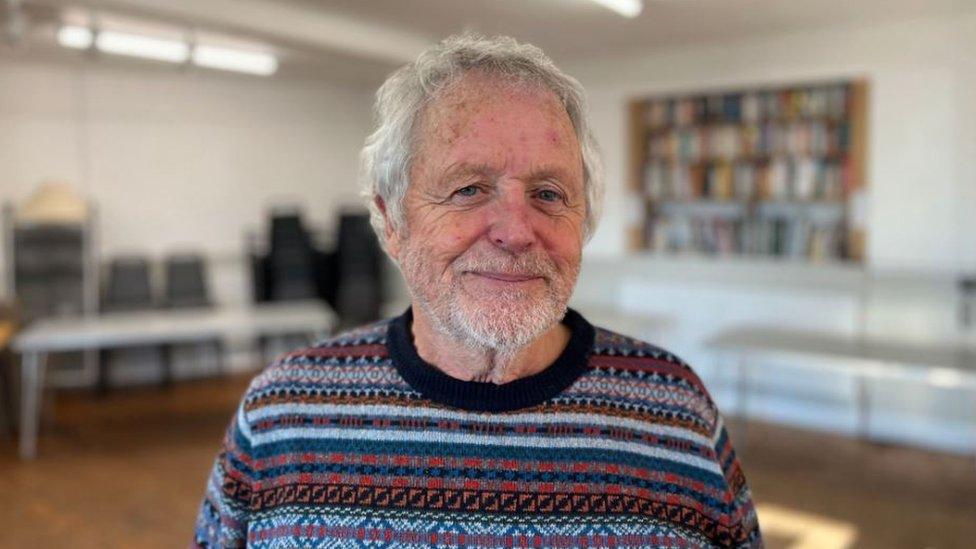
David Patterson founded the charity in 2018 after chatting to friends about the struggling care system
Described like a dating agency by matching local carers with local clients in need of help with personal care, gardening, dog walking, collecting shopping and company.
Mr Patterson, who used to be a social care worker for children and families, said he believes "in community" and the concept could be introduced "everywhere".
The charity founder said they only ever have one or two clients waiting to be discharged from hospital at any one time.
He also said while they cannot meet every need, the idea has kept more clients in their own homes for longer.
The charity also holds a weekly memory group where members take part in activities such as dance and storytelling.
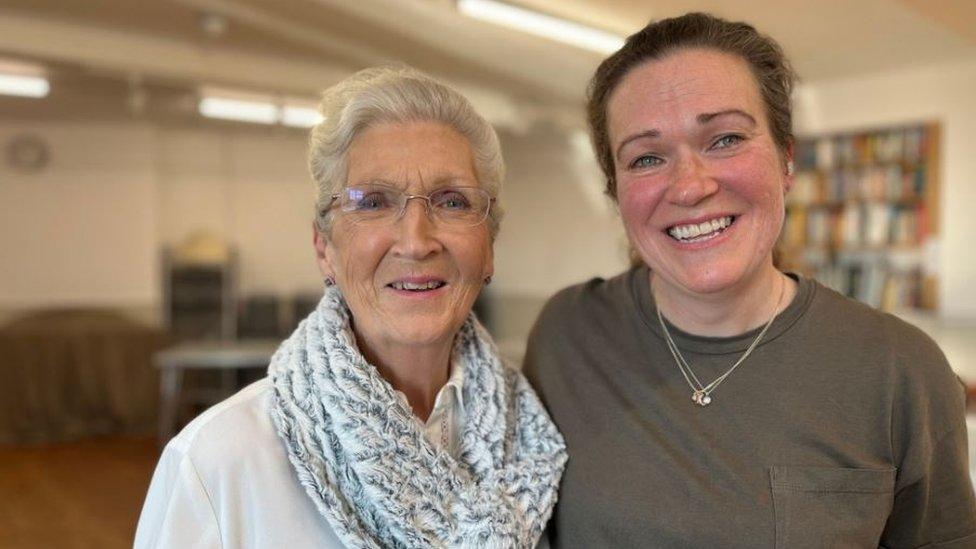
Louise Cook, who cares for her mother Frances, said the charity's memory group had become an "absolute lifeline"
Nick came across the group after his late wife, who had dementia, needed care.
"It was something for me to do and enjoy. You get out and chat to people," he said.
Louise Cook, who cares for her mother Frances, said the group had become an "absolute lifeline".

Follow BBC West on Facebook, external, Twitter, external and Instagram, external. Send your story ideas to: bristol@bbc.co.uk , external
Related topics
- Published20 January 2023
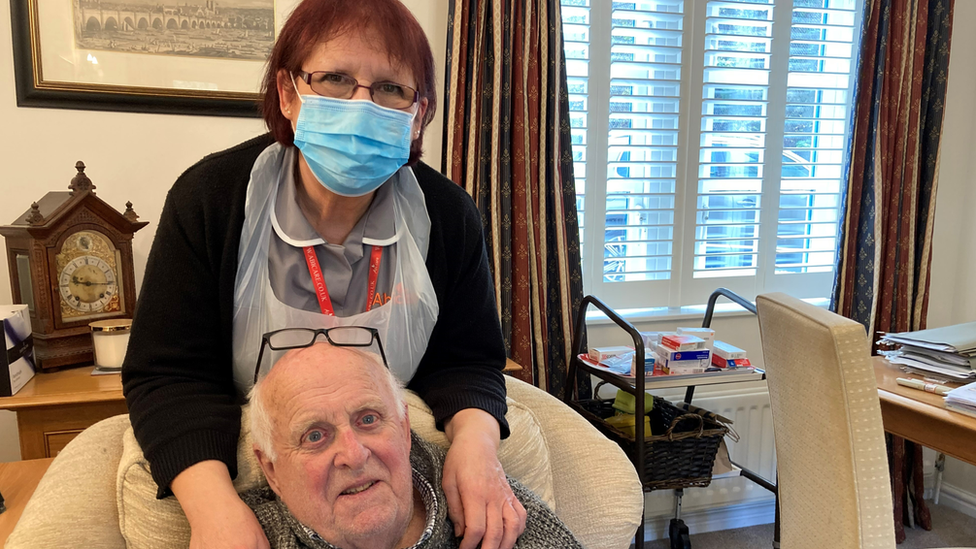
- Published22 January 2023
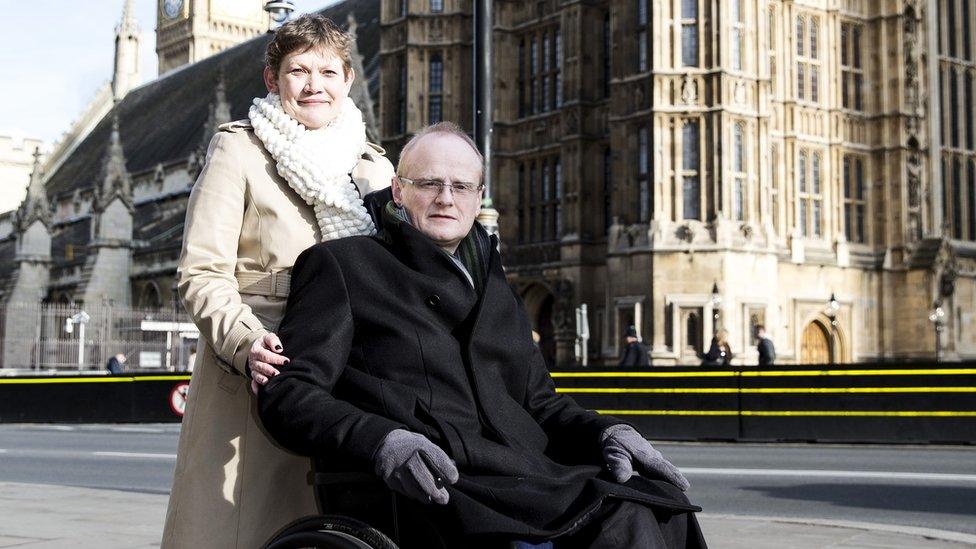
- Published15 February 2021
